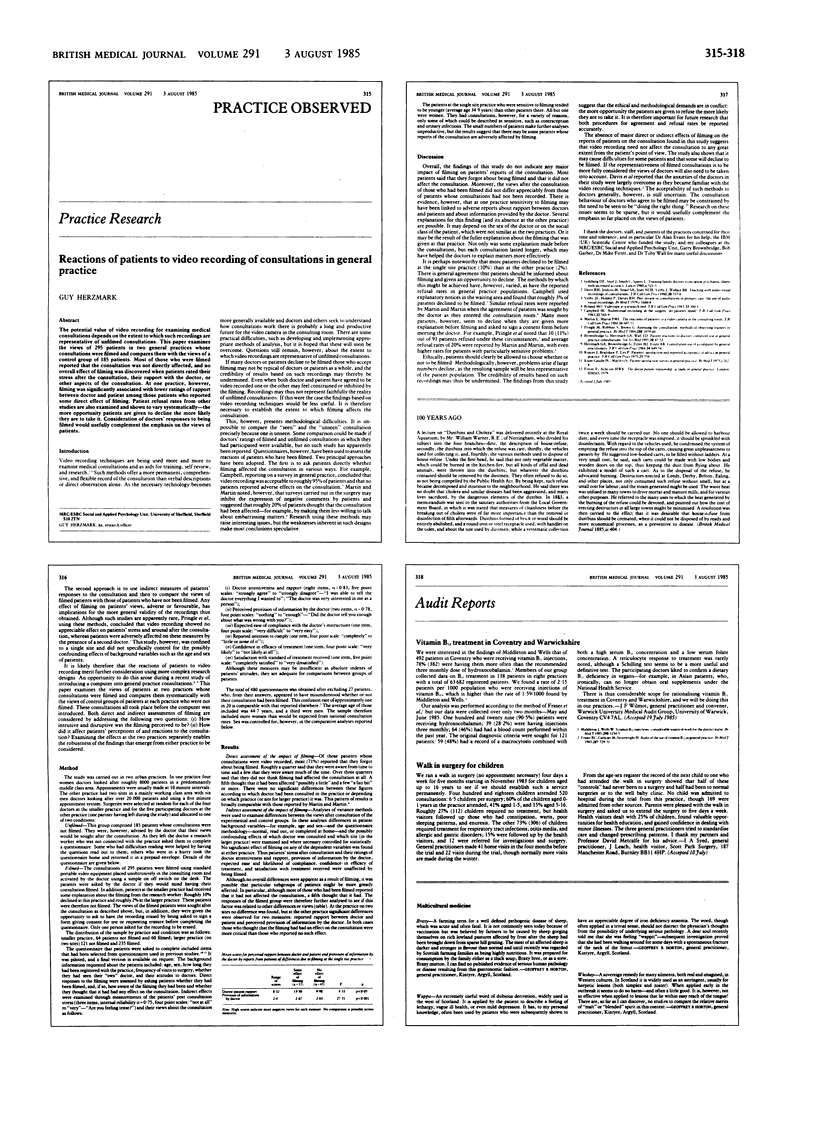Abstract
The potential value of video recording for examining medical consultations depends on the extent to which recordings are representative of unfilmed consultations. This paper examines the views of 295 patients in two general practices whose consultations were filmed and compares them with the views of a control group of 185 patients. Most of those who were filmed reported that the consultation was not directly affected, and no overall effect of filming was discovered when patients rated their stress after the consultations, their rapport with the doctor, or other aspects of the consultation. At one practice, however, filming was significantly associated with lower ratings of rapport between doctor and patient among those patients who reported some direct effect of filming. Patient refusal rates from other studies are also examined and shown to vary systematically--the more opportunity patients are given to decline the more likely they are to take it. Consideration of doctors' responses to being filmed would usefully complement the emphasis on the views of patients.
Full text
PDFPage 315-318



